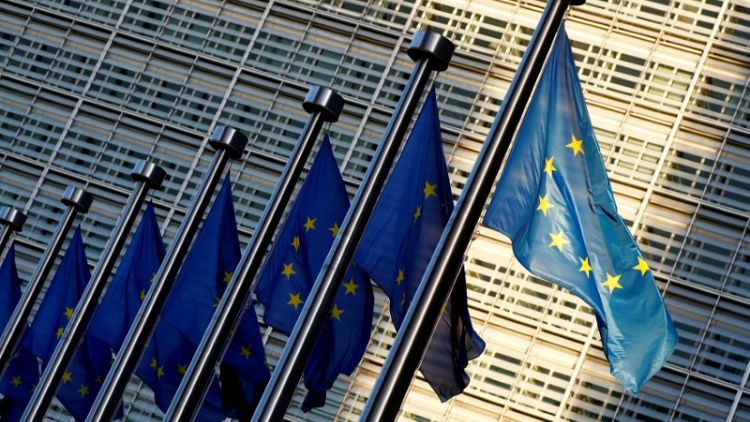By Huw Jones
LONDON (Reuters) - Smaller firms will not have to clear their derivatives trades under changes to European Union rules agreed by the bloc's lawmakers and member states on Tuesday to cut red tape.
The revision of rules for privately-traded or over-the-counter (OTC) derivatives also streamlines requirements for reporting transactions, the bloc's executive European Commission said in a statement.
It extends a waiver from clearing of derivative contracts from pension schemes by two years, it added.
The revision seeks to make it easier to access a clearing house, a third party that stands between two sides of a derivatives trade to ensure its smooth completion.
"In particular, the text introduces an obligation on clearing brokers to provide services on fair, reasonable, non-discriminatory and transparent commercial terms by ensuring in particular transparency on fees as well as unbiased and rational contractual arrangements," EU member states said in a statement.
During the financial crisis a decade ago, regulators had no central records for checking which institutions were exposed to derivatives trades held by struggling banks, fuelling uncertainty in markets.
Regulators later introduced mandatory clearing and reporting of derivatives transactions that traded privately among banks and large institutional investors such as pension funds in order to increase safety and transparency.
The EU, and the United States, are now revisiting post-crisis rules that were passed quickly in order to make them work better and be less costly for smaller firms.
Tuesday's revision was thrashed out by members of the European Parliament and representatives of EU states. It will need formal rubber-stamping by both bodies to take effect.
(Reporting by Huw Jones; editing by David Evans)



